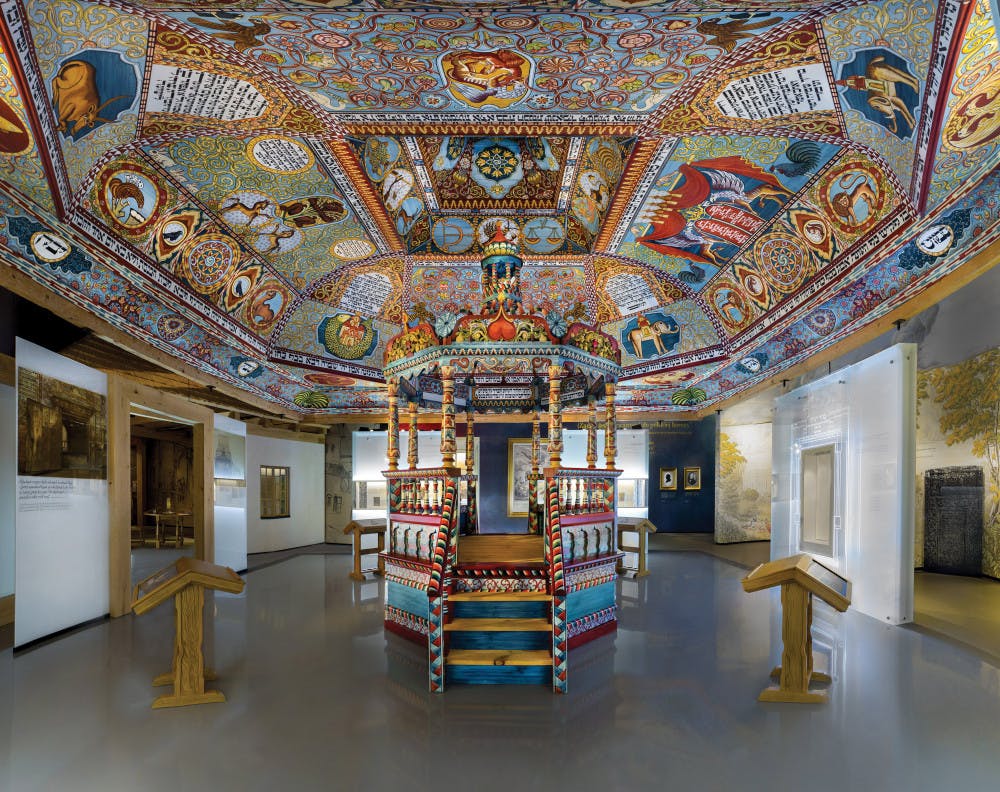Adam Teller, associate professor of history and Judaic studies, was awarded the “Zasluziny dla Kultury Polskiej” — an Order of Merit for a Contribution to Polish Culture — last week. Given by the Polish Minister of Culture, the medal recognizes Teller’s central role in creating the Museum of the History of Polish Jews in Warsaw, Poland. Teller contributed to the museum, which exhibits a narrative of Jewish life in Poland, by recreating the stories of Polish Jews who lived during the early modern period, between 1500 and 1800, he said.
The coexistence of Jewish and Polish cultures during the former Polish-Lithuanian Commonwealth was one fraught with difficult relations. Teller said he strives to create a dialogue between “two peoples separated by a historical chasm of hatred and resentment,” adding that his academic work serves as a bridge between the two.
The museum, which opened in October 2014, marks a major step forward in acknowledging that Jewish culture is integral to Polish history, Teller said. The Polish government and the Warsaw City Council funded the project, but the academic team was comprised of a mix of Polish, Jewish and Polish-Jewish scholars.
“We have not quite rewritten history, but we are showing it in a different light,” Teller said. The museum does not present the shared past “through a prism of hatred and persecution,” but rather, it attempts to reconstruct the creativity and mutualistic relations fostered during that time.
Integrating the historical intellectual moments with those of persecution was “complicated to do in a way that expressed everything in a natural way,” he said. The Polish government exerted some pressure to underline positive facets of its political history, he added.
“After this long period of bitterness and hatred, Jewish life in Poland is beginning to be celebrated for its vibrant, integral culture,” which marks a large change, Teller said. The museum opening last fall was a “shining example” of collaborative success. “Both sides are coming to a rich understanding of how important it was and how much was lost,” he added.
It is a “historic moment” for the Polish government to grant Teller the award and acknowledge that Jewish culture is a part of its own culture and history, Teller said. The Polish government of the early 20th century did not fully recognize several prominent Jewish-Polish historians as Poles before the Holocaust, and Teller said he hopes his recognition by the government will be seen as an indication that the contributions of those scholars are now accepted.
“It’s really quite exciting that Professor Teller’s contributions to Polish history have been recognized in this way,” wrote Saul Olyan, professor of religious studies and director of the program in Judaic studies, in an email to The Herald.
This semester Teller is teaching JUDS 0901: “Brothers Betrayed: Jews and Poles from 1500 until today,” a class for which students will travel to Poland over spring break. Teller has taught this class in the past, but this year it coincides with a grant awarded to Brown/RISD Hillel by a private family foundation interested in enabling Brown students to have first-hand experiences with European Jewish culture.
“The course fit in beautifully” and lent itself well to the goal of hands-on experience, said Marshall Einhorn, executive director of Hillel.
The group of 20 students will travel to Poland, where they will visit the museum. While there, the class will focus on history, the Holocaust and current Jewish life in Poland. They will work with students from Jagiellonian University and meet contemporary Jewish communities in Poland.
The medal Teller received is an “incredible” sign of the changing Polish-Jewish relations, said Shayna Zema ’15, a student in the class. The culture, values, traditions and history are very much intertwined, she said, adding that the recognition of this as a “crucial” part of Polish history is exciting.
Zema has familial roots in the Polish-Lithuanian Commonwealth, but that line perished during the Holocaust. She said she hopes the trip will be a way to see how life was for her relatives and gain insight beyond “the textbook account that looks at specific, individual and very complex relations.”





